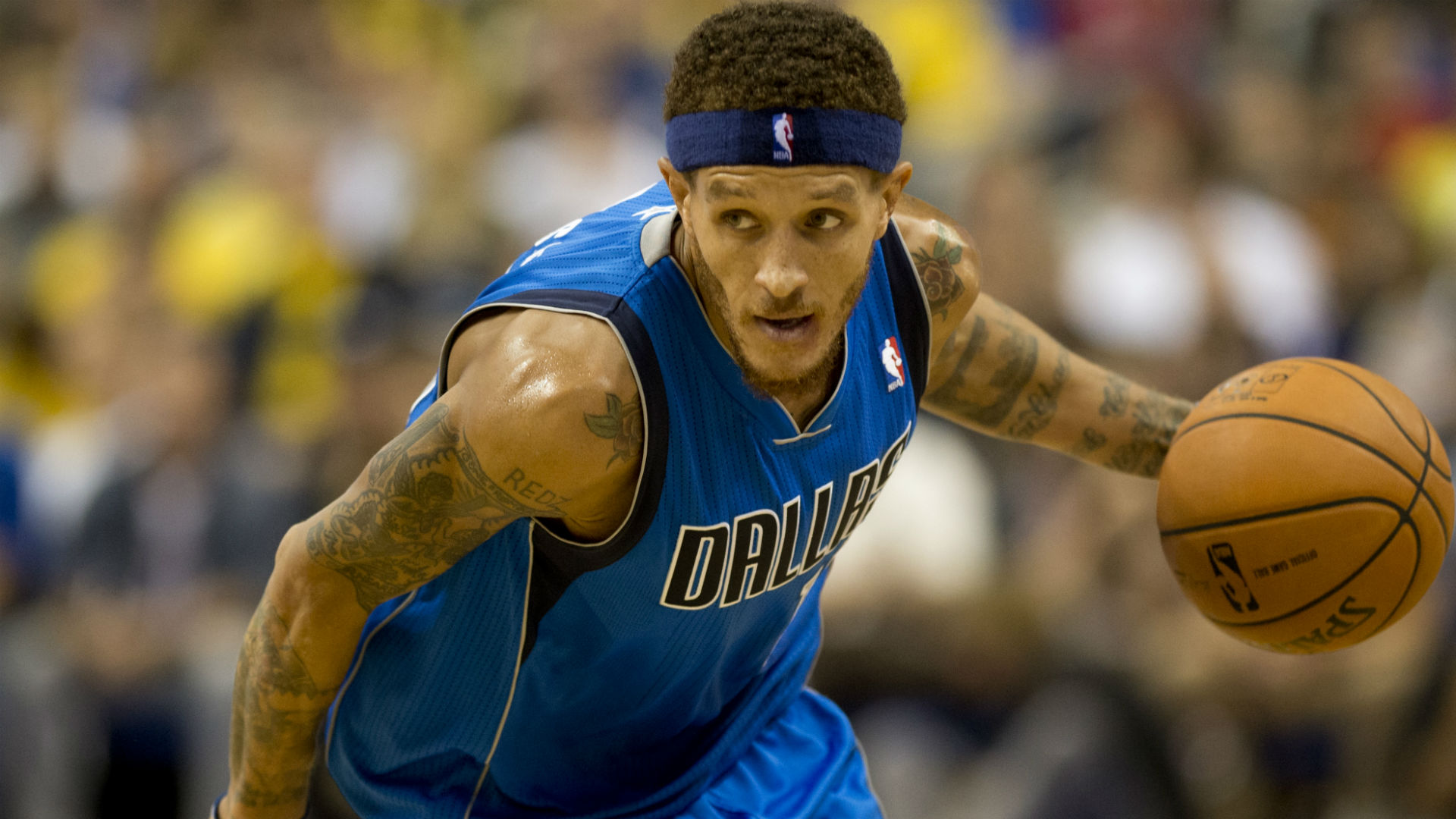Delonte West’s NBA Career and Struggles
Delonte West, once a promising NBA guard, faced a tumultuous career marked by both triumphs and challenges. His journey through the league provides insights into the complexities of mental health and its impact on athletic performance.
West’s NBA career began with the Boston Celtics in 2004, where he quickly established himself as a reliable defender and a key contributor. In 2008, he was traded to the Cleveland Cavaliers, where he played alongside LeBron James. During his time in Cleveland, West became known for his unwavering hustle and intensity, earning the respect of teammates and opponents alike.
However, West’s personal life began to unravel as he struggled with depression and bipolar disorder. These issues manifested on and off the court, affecting his performance and relationships with others. In 2010, he was suspended for 10 games after an altercation with a fan. His mental health struggles continued, and he was eventually released by the Cavaliers in 2012.
West’s post-NBA life has been marked by homelessness, legal issues, and ongoing mental health challenges. His story highlights the importance of addressing mental health in professional sports and the need for support systems for athletes struggling with these issues.
Accomplishments and Challenges
Throughout his NBA career, Delonte West achieved several notable accomplishments:
– Won an NBA championship with the Boston Celtics in 2008
– Averaged 9.7 points and 3.6 assists per game during his career
– Known for his exceptional defense and ability to guard multiple positions
However, West also faced significant challenges during his career:
– Struggled with depression and bipolar disorder, which impacted his performance and personal life
– Suspended for 10 games in 2010 after an altercation with a fan
– Released by the Cleveland Cavaliers in 2012 due to ongoing mental health issues
Mark Cuban’s Involvement in Delonte West’s Life: Delonte West Mark Cuban

Delonte west mark cuban – Mark Cuban, the owner of the Dallas Mavericks, played a significant role in Delonte West’s life, providing both financial and emotional support during challenging times.
Cuban’s Motivations for Involvement
- Cuban was impressed by West’s talent and potential on the basketball court.
- He believed in West’s ability to overcome his struggles and succeed in life.
- Cuban saw West as a reflection of his own past experiences and wanted to help him avoid similar pitfalls.
Examples of Cuban’s Support
- Cuban provided financial assistance to West, including paying for his medical expenses and housing.
- He offered emotional support, listening to West’s problems and encouraging him to seek help.
- Cuban also gave West opportunities to work with the Mavericks organization, such as coaching youth basketball camps.
Impact of Cuban’s Involvement, Delonte west mark cuban
- Cuban’s support helped West stabilize his life and address his mental health issues.
- It gave West hope and a sense of purpose during a difficult time.
- Cuban’s involvement raised awareness about the importance of mental health in the NBA and beyond.
Social Media and the Public’s Perception of Delonte West

The advent of social media has had a profound impact on the public’s perception of Delonte West. On the one hand, social media has allowed West to connect with his fans and share his story in a way that would not have been possible in the past. On the other hand, social media has also been a source of negative attention for West, as his struggles have been played out in the public eye.
Negative Media Coverage
Negative media coverage has played a significant role in shaping the public’s perception of Delonte West. In recent years, West has been the subject of numerous stories about his struggles with mental illness and substance abuse. These stories have often painted a very negative picture of West, and they have led many people to believe that he is a dangerous and unstable individual.
The negative media coverage has had a devastating impact on West’s recovery and well-being. West has said that the constant scrutiny and criticism have made it difficult for him to focus on his recovery. He has also said that the negative media coverage has made it difficult for him to find a job and rebuild his life.
Positive Media Coverage
In addition to the negative media coverage, there has also been some positive media coverage of Delonte West. This coverage has focused on West’s resilience and his determination to overcome his struggles. These stories have helped to humanize West and they have shown that he is more than just a troubled athlete.
The positive media coverage has had a positive impact on West’s recovery and well-being. West has said that the positive stories have given him hope and they have helped him to believe that he can overcome his struggles. He has also said that the positive media coverage has helped him to find a job and rebuild his life.
Ethical Considerations
The public’s fascination with Delonte West’s struggles raises a number of ethical considerations. On the one hand, it is important to raise awareness of mental illness and substance abuse. On the other hand, it is also important to respect West’s privacy and to avoid exploiting his struggles for entertainment purposes.
There are a number of things that the media can do to ensure that their coverage of Delonte West is ethical. First, they should focus on West’s resilience and his determination to overcome his struggles. Second, they should avoid sensationalizing West’s story. Third, they should give West the opportunity to tell his own story in his own words.
Delonte West’s tumultuous journey took a hopeful turn when Mark Cuban extended a helping hand. As West’s story unfolded, it brought to mind the indomitable spirit of Walt Frazier , the legendary Knicks guard. Frazier’s resilience and unwavering determination amidst adversity served as an inspiration, echoing in West’s own path towards redemption.
Cuban’s compassion, akin to Frazier’s tenacity, ignited a glimmer of hope in West’s arduous struggle, offering a lifeline to a troubled soul.
In the realm of basketball, the tale of Delonte West and Mark Cuban intertwines like a symphony. Amidst the echoes of their shared journey, the legacy of James Worthy here emerges as a guiding light. Worthy’s indomitable spirit and relentless determination resonate with the challenges faced by West and Cuban, reminding them that even in the darkest of times, hope can ignite a path towards redemption and renewal.
Delonte West’s troubled journey took an unexpected turn when Mark Cuban extended a helping hand. Cuban’s compassion resonated with many, including basketball legend Walt Frazier , who had faced his own struggles. Frazier’s unwavering belief in second chances reminded Cuban of the importance of empathy and support, further cementing his commitment to assisting Delonte West in his recovery.
Like the enigmatic journey of Delonte West under Mark Cuban’s wing, the rise of Patrick Mahomes is a testament to the transformative power of mentorship. Just as Mahomes found guidance in Andy Reid, West’s trajectory was shaped by Cuban’s unwavering support, a reminder that even in the turbulent waters of life, there are those who will extend a lifeline.
Mark Cuban’s compassion towards Delonte West, extending a helping hand to a troubled soul, resonates with the legacy of legendary players like Bob Cousy , who epitomized sportsmanship and kindness. Cousy’s enduring spirit reminds us that true greatness lies not only in athletic prowess but also in the ability to uplift others.
And so, as West embarks on his path to recovery, we can draw inspiration from the empathy shown by Cuban and the enduring legacy of Bob Cousy.